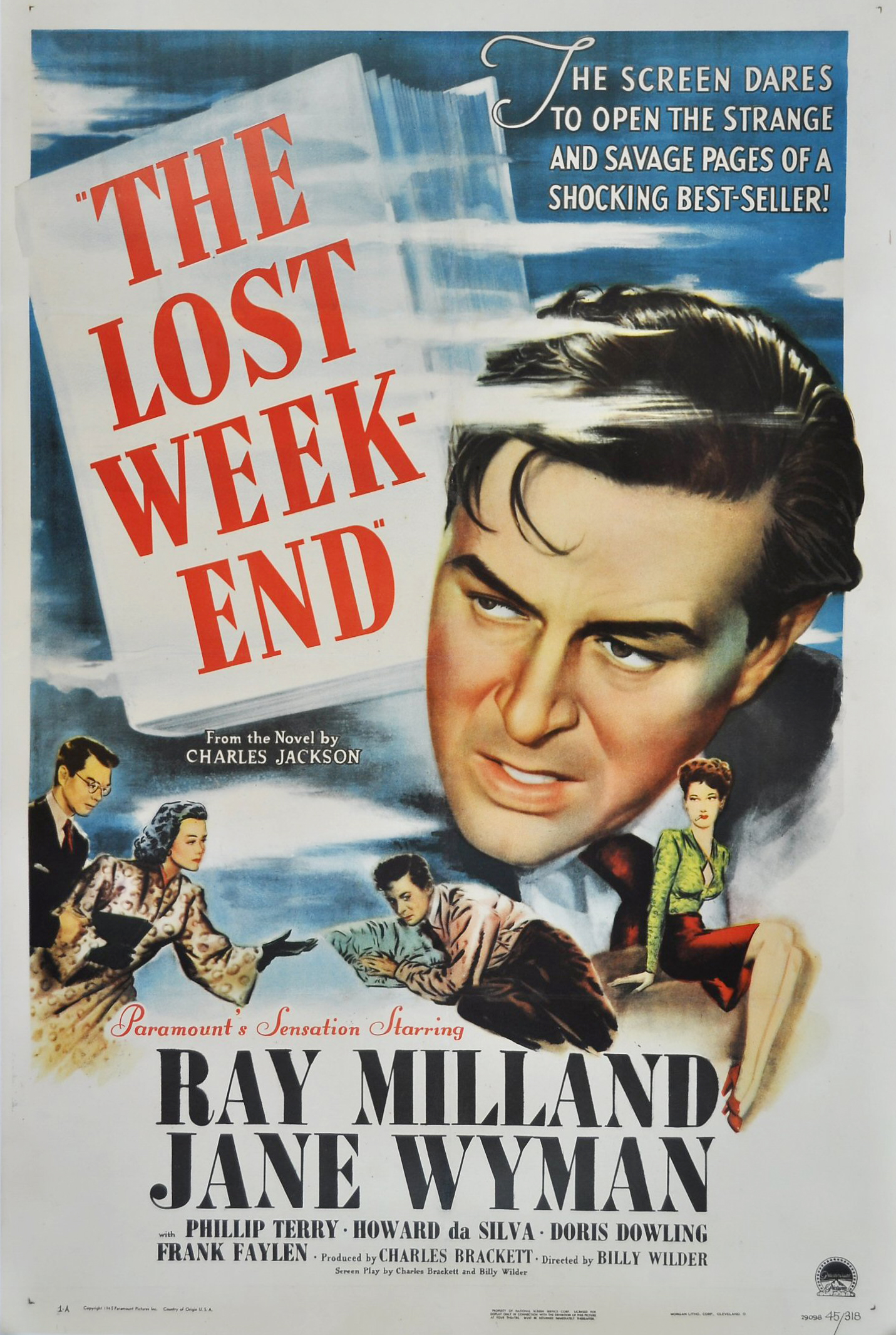
- Golden Globe Awards
1946 – The Lost Weekend
A powerful drama about four days in the life of an alcoholic writer spiraling out of control, The Lost Weekend is the fourth film of Billy Wilder’s extraordinary career as a director and only his third US production. Self-exiled in Hollywood after the ascent of Nazism in his native Austria, Wilder had left behind over a decade of steady work as a screenwriter, and was, in his own words, “learning to do it all over again”, in great part thanks to his collaboration with writer Charles Brackett, who would be his writing partner throughout his career.Based on Charles R. Jackson’s semi-autobiographical bests seller of the same name, The Lost Weekend follows writer Don Birnam (Ray Milland) as he deliberately misses the train that would have taken him to a sober holiday with his brother and wanders from bar to bar in an escalating consumption of booze, interspersed with hallucinations and flashbacks.Dark, intense and aesthetically bold, Weekend was shot in part on location in New York, per Wilder’s request – a rather unusual practice in an industry whose motto at the time was “a tree is a tree, shoot it in Griffith Park”. In an even bolder move for the time, Wilder placed hidden cameras behind boxes or in the back of trucks to capture Milland as he walked up 3rd Avenue among actual pedestrians,and received an unprecedented permission to shoot inside the Bellevue Hospital. Much of Weekend’s look- a result of Wilder’s work with cinematographer John F. Seitz, who would be become another lifetime collaborator – would influence the new generation of filmmakers that would come to define the 1960s and 1970s cinema in the US and abroad.A critical and commercial success, The Lost Weekend won two additional Golden Globes – Wilder, best director, and Miland, best actor – and went on to collect many other accolades.

